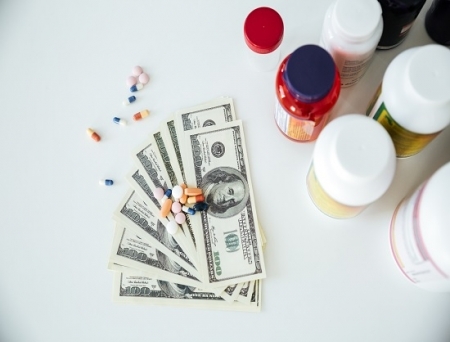Eli Lilly Opposes Tariffs on Medicines, Calls for Strategic Incentives to Strengthen US Manufacturing

Eli Lilly, the American multinational pharmaceutical company, has voiced strong opposition to proposed tariffs on pharmaceutical products, cautioning that such measures could increase costs, limit patient access, and weaken US leadership in biopharmaceutical innovation.
Instead, Lilly has urged the administration and Congress to prioritize strategic incentives that strengthen US manufacturing and supply chain resilience without sacrificing access, affordability, innovation, or American leadership.
“Lilly opposes tariffs on pharmaceutical products, including on the medicines we make. Medicines have long been excluded from tariffs because of their life?saving nature. Broad tariffs would raise costs, limit patient access, and undermine American leadership, especially for companies already investing heavily in domestic manufacturing,” the company said in a statement.
Lilly agreed that the costs of developing breakthrough medicines should be more evenly distributed across developed countries.
“Lilly supports the administration’s goal of keeping the United States the world’s leading destination for biopharmaceutical research and manufacturing, and the objective of more fairly sharing the costs of breakthrough medical research across developed countries. This rebalancing may be difficult, but it means the prices for medicines paid by governments and health systems need to increase in other developed markets like Europe in order to make them lower in the US.”
“Medicine prices should reflect their value for patients, health systems, and society,” Lilly noted, adding that the company has recently intensified efforts to align prices across developed countries, especially in Europe.
“We are continuing to work with certain governments and expect to make any necessary pricing adjustments by September 1, while providing continued access for patients. This includes an agreement with the UK government to increase the list price of Mounjaro, while maintaining access for NHS patients,” it revealed.
Lilly highlighted concrete actions it has taken to lower costs for American patients. These include scaling Lilly Direct to provide more affordable access to Lilly medicines, including Zepbound, and leading the industry by reducing insulin prices by 70 percent and capping what people pay monthly at USD 35.
However, the company underscored the need to address the underlying structural issues in the US that have contributed to high drug prices.
“The US system is complex and opaque, with multiple cross subsidies, abuse of government programs like 340B, and insurance cost-sharing burdens for patients. This makes the US different from other developed nations, which have a less complicated system and low, or no out-of-pocket costs for patients,” it explained.
Since 2020, Lilly has committed over USD 50 billion to US manufacturing expansion, including 10 active projects designed to supply the US market entirely from US facilities and increase exports. It has also announced USD 5 billion to expand capacity in other countries.
“Lilly remains committed to working with the administration on drug?pricing reforms that benefit patients and sustains America’s leadership in biomedical innovation,” the company added.
supply chain resilience Biopharmaceutical innovation Breakthrough medicines Domestic manufacturing Eli Lilly Lilly medicines Tariffs on pharmaceutical products US biopharmaceutical manufacturing
Last news about this category
We use our own and third party cookies to produce statistical information and show you personalized advertising by analyzing your browsing, according to our COOKIES POLICY. If you continue visiting our Site, you accept its use.
More information: Privacy Policy
















